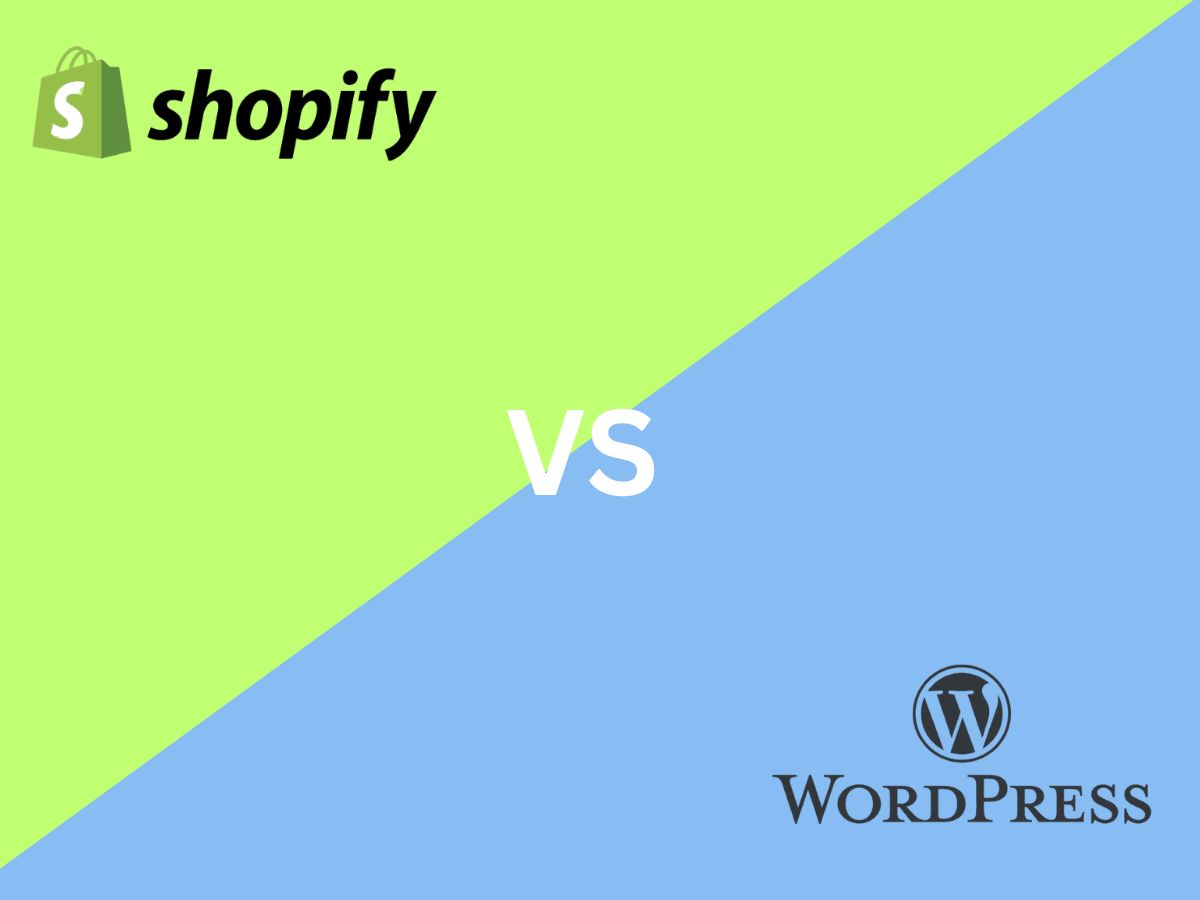The selection of Shopify vs WordPress to create your online store is an important choice and depends on your business model, technical skills, scalability demands, and budget. The two platforms are the leaders in the e-commerce industry, but have several specific benefits and factors to consider. This extensive guide will cover the features, pricing, customization, and SEO options among many to enable you to decide which of the platforms best suits your business goals.
Overview: Shopify vs WordPress
Shopify is a fully hosted e-commerce platform that is very easy to use and requires no technical knowledge; it has built-in features that allow selling products online, with features such as payment processing, inventory management, and security. It suits best those users willing to pay a little more to get an all-in-one, fast, and without technicalities. WordPress, on the other hand, is a versatile content management system (CMS) that, paired with such plugins as WooCommerce, can provide potent e-commerce capabilities. WordPress is highly customizable, but the user is responsible for taking care of hosting, security, and updates. Shopify is more applicable to users who are strictly interested in undertaking online sales, whereas WordPress is more applicable to content-rich web pages that require high levels of customization. This decision should be made depending on your objectives and proficiency.
Quick Verdict: Shopify vs WordPress
Shopify is superior if you desire an all-in-one e-commerce solution that is free of hassles. It is newbie-friendly, needs no code, and it provides hosting, security, and payment integration out of the box. It is, however, accompanied by monthly charges and lacks design freedoms without applications or programming. WordPress (and WooCommerce), on the other hand, is the best choice when you need everything under your control, flexibility, and content-rich features. It is more complicated, needs technical configuration and support, but it is more customizable and scalable. Use Shopify when you want something easy and fast; use WordPress when you want something you can customize, filled with content, and you want to control everything on your site.
Shopify vs WordPress: Pros and cons
Shopify
Pros
- User-friendly: No technical experience required; drag and drop interface.
- One Stop Shop: Hosting, security, and updates are available.
- Rapid deployment: Can start up a store within hours.
- Quality Assistance: 24-hour customer support.
- E-commerce Driven: It was designed to sell goods over the internet.
- In-house Payment System: Shopify Payments helps to minimize the use of 3rd party gateways.
Cons
- Minimal Customization: Less flexible without sophisticated coding.
- Monthly Fees: Fees can accumulate with apps and premium themes.
- Transaction Fees: Unless Shopify Payments is being used.
- Lock-in Platform: Reduced control over server or codebase.
WordPress
Pros
- Extreme Personalization: complete freedom in designing and functionality.
- Scalable: Suitable for blogs, portfolios, and intricate websites.
- SEO-Friendly: lots of SEO plugins and control.
- Ecosystem: Large Plugins and themes.
- Cost Control: Basic software is at no cost; pay when you require.
Cons
- Technical Setup Required: It needs hosting, a domain, and a security setup.
- Maintenance Responsibility: You do the updates, backups, and fixes.
- Learning Curve: Not the best choice for absolute beginners.
- Plugin Dependency: Third-party plugins are usually needed to make use of advanced features.
Summary: Shopify is the way to go when you need an out-of-the-box e-commerce store without the worries.
WordPress is a good option when you require more flexibility, when you own the infrastructure, and when you are not scared to get your hands a bit dirty.
Pricing
Shopify Pricing (All-in-One Platform)
- Starter Plan: 5$ per month (sell on social media and messaging apps)
- Basic Plan: 39.00$/month
Features online store, simple reports, 2 employee accounts
- Shopify Plan: 105$/month
Adds professional reports, further staff accounts
- Advanced Plan: 399$/month
Advanced reporting, set prices, reduced transaction costs;
- Shopify Plus: It starts at $2,300/month
Advanced customization, enterprise functionality, enterprise features, enterprise-level customization, functionality, enterprise-level customization, enterprise features, advanced customization
Extra Costs
- Premium themes: 150-350 (one time)
- Paid applications: 5-100 dollars and more monthly
- 2% (0.5% -2%) transaction fee without Shopify Payments.
WordPress Pricing
- WordPress Software: Free
- Domain Name: 10-20 /year
- Web Hosting:
Shared hosting: 5-15$/month
Managed WordPress hosting: 20-50$/month and up
- SSL Certificate: Included with many hosting plans; otherwise ~10-70/year
- Premium Themes: 30-100+ (one time)
- Plugins & Extensions: Free – 300+/year ( wide range )
- Optional Developer Support: Depends on scope
Summary
Shopify
- Predictable pricing
- Has hosting, security, and support
- It may be costly on apps and transaction charges
WordPress
- Flexible pricing
- Greater functionality and price control
- Needs configuration and constant maintenance
Feature Comparison: Shopify vs WordPress
Here’s a detailed Features comparison between Shopify and WordPress
Sales Features
The native sales capabilities of Shopify, such as product management, real-time inventory, product options, and abandoned cart recovery, are very robust. It allows multi-channel selling on platforms such as Facebook, Instagram, and Amazon, and the integration is seamless.
WordPress equally offers powerful selling features, such as creating product types, easy inventory management, and extensive payment gateway integration. Nevertheless, numerous options, such as subscriptions, advanced shipping, or cart recovery, will need extra plugins. Shopify is more sales-ready out of the box, whereas WordPress is more flexible and customizable to those who are okay with managing plugins and options. The two can be scaled to large stores when properly set up. Shopify offers built-in sales tools, while WordPress needs plugins. Shopify offers features of advanced inbuilt sales whereas WordPress uses eCommerce through plugins. Shopify vs Printify are two companies that operate in different directions, where Shopify deals with the overall operation of the storefront, and Printify handles print-on-demand fulfillment of products.
Apps
The Shopify App Store contains more than 8,000 apps that are carefully vetted to ensure that they are used to extend e-commerce functionality. These apps include marketing automation, reviews and upselling, accounting, shipping, and dropshipping. It integrates with popular apps, such as Klaviyo, Oberlo (dropshipping), and Recharge (subscriptions). Shopify apps undergo a quality and security review process, so they are reliable, yet most of them require monthly payments. They are fast to install, and the support is often offered by app developers.
WordPress is fueled by WooCommerce, and its flexibility is unrivalled by the availability of more than 55,000 free and paid plugins. These plugins’ compatibility allows advanced e-commerce functionalities, SEO, content marketing, and security, among others. Some extensions are WooCommerce-specific and allow such extensions as subscriptions, dynamic pricing, booking systems, and marketplace functionality. Although the WordPress plugin ecosystem is large, not all quality and compatibility may be available, and users need to validate the plugins. Most of the useful WooCommerce extensions are premium, but they can be more cost-effective in the long term than Shopify applications.
Conclusively, Shopify apps are simple and fairly safe with minimal customization, whereas WordPress plugins are more extensively flexible and broad-spectrum in functionality, but possibly demand more technical management. Shopify is easier to use and requires no setup unless you want advanced features and custom integrations, in which case WordPress is preferred.
Ease of Use
Shopify has a reputation for being easy to use and having an all-in-one interface. It is newbie-friendly, and no coding is needed. Adding products, designing your store with the help of drag-and-drop tools, processing orders, and having access to such built-in features as payment processing and shipping are some of the things that you can manage through a single dashboard. It only takes minutes to set up, and aspects of maintenance such as security and updates are automatically managed by Shopify.
WordPress (using WooCommerce) is more flexible but more difficult to learn. You will be responsible for creating hosting, installing WordPress and WooCommerce, working with themes, plugins, and security manually. It’s robust, yet ideal only for those users who have a bit of a technical aptitude or access to a developer.
SEO and Marketing
Shopify has good in-built SEO tools, with the ability to modify the meta titles, descriptions, alt text, and search engine-friendly URLs. It creates sitemaps automatically and permits simple redirects. Nevertheless, the customization of SEO is slightly narrow- Shopify does not allow to have complete control over URL structure and some other advanced SEO techniques. In the marketing department, Shopify is brilliant, having smooth integrations with email marketing (e.g., Klaviyo, Omnisend), social media advertising, Google Shopping, and multi-channel selling. It also has such functions as discount codes, abandoned cart recovery, and simple automation, which means that even non-tech users can create successful campaigns within minutes.
Instead, WordPress + WooCommerce is the most flexible SEO solution. With the help of such powerful plugins as Yoast SEO or Rank Math, a user can adjust all the details related to the SEO of their site, including schema markup, breadcrumbs, content analysis, and sitemap management. The use of WordPress in content marketing is also perfect because of its effective blogging capabilities. Plugin options are limitless, whether using Mailchimp, HubSpot, or custom code, in the case of email, ads, or automation.
Select Shopify because of its simplification and built-in marketing strategies.
Select WordPress when you want to do powerful SEO, extensive content marketing, and have complete control of customization.
Templates
Shopify provides a selection of approximately 100 professionally designed themes, some of which are free, and the others range in price (usually $1501350). These themes are responsive, mobile optimized, and highly customizable via the Shopify theme editor, without code. Themes Shopify Themes are tailored to create an excellent shopping experience, with an emphasis on product displays and the checkout process. Nonetheless, more advanced customization usually involves familiarity with the Liquid code used by Shopify.
Using WordPress, thousands of free and premium themes are available through the large ecosystem of WooCommerce. There are numerous themes designed specifically to work with WooCommerce and feature a deep integration with popular page builders such as Elementor, Divi, or Beaver Builder, enabling drag and drop customization without writing any code. WordPress themes come in a wide range of varieties in terms of style and sophistication, providing much more design flexibility, but occasionally may demand technical expertise to accomplish full customization and optimization.
Summary: Shopify templates are easier and e-commerce ready, whereas WordPress themes are more design flexible and allow more creativity.
Security: Shopify vs WordPress
Shopify is a highly hosted service that will handle all the security concerns on your behalf. It comes with SSL certificates, which guarantee encryption of data between your site and your customers. Shopify is PCI DSS compliant, which implies that it has passed the stringent requirements of safely processing credit card payments. Automatic updates and monitoring keep your store safe from any vulnerability. A dedicated security team minimises risks such as hacking or malware because Shopify has the necessary infrastructure. Backup and recovery happen behind the scenes, hence you do not need to worry about losing data.
WordPress, however, is self-hosted and thus security lies in your hosting company and your site management skills. You would need to install SSL certificates on your own, maintain WordPress core, themes, and plugins up-to-date, and employ security plugins (such as Wordfence or Sucuri) to defend against threats. Malware scans and backups need individual tools or services. Due to its popularity, WordPress is regularly attacked, and it is important to manage its security actively.
In short, Shopify will provide you with a ready-to-use security with a minimum of effort, whereas WordPress will force you to take direct care of your site and provide it with expert knowledge to remain secure.
Help and Support: Shopify vs WordPress
Shopify offers an extensive, around-the-clock customer service that can be reached in several ways: live chat, email, and phone. This support team is exclusive and has a reputation for being fast and friendly; thus, users, particularly new ones, can easily receive help whenever required. There is also a comprehensive knowledge base, tutorials, and a community forum where users can find answers and share experiences on Shopify. Since Shopify manages the whole platform, its support team can address most of the problems quickly without involving third parties.
Now, since WordPress is an open-source platform, its official support is not centralized. Rather, users turn to a large community around the world, forums, blogs, and documentation. Themes and plugins provide support dedicated to them, many being available only in premium versions. Freelance developers or agencies have become the resort of users when it comes to technical problems. Although the WordPress community is numerous and very active, a new user may not receive the assistance as quickly and coherently as offered by Shopify with its customer support simplicity.
In a nutshell, Shopify has simpler and direct support, whereas WordPress support relies more on the community and third parties.
Final Verdict: Shopify vs WordPress
Shopify can be considered the most suitable option by users who want to have a straightforward, all-in-one e-commerce platform with provision of easy setup, quality hosting, built-in security, and around-the-clock support. It would be best if it were used by a novice or a business that only aims at selling products without any technicalities, quickly.
WordPress is the most flexible, customizable, and SEO-enhanced online store plugin, which is ideal for users who prefer to have complete control over their site and online shop. It is greater in technical know-how and requires manual management, but is excellent in content-based business and multifaceted stores.
In the end, select Shopify when you want things to be easy and fast, and WordPress when you want things to be flexible and under your control.









